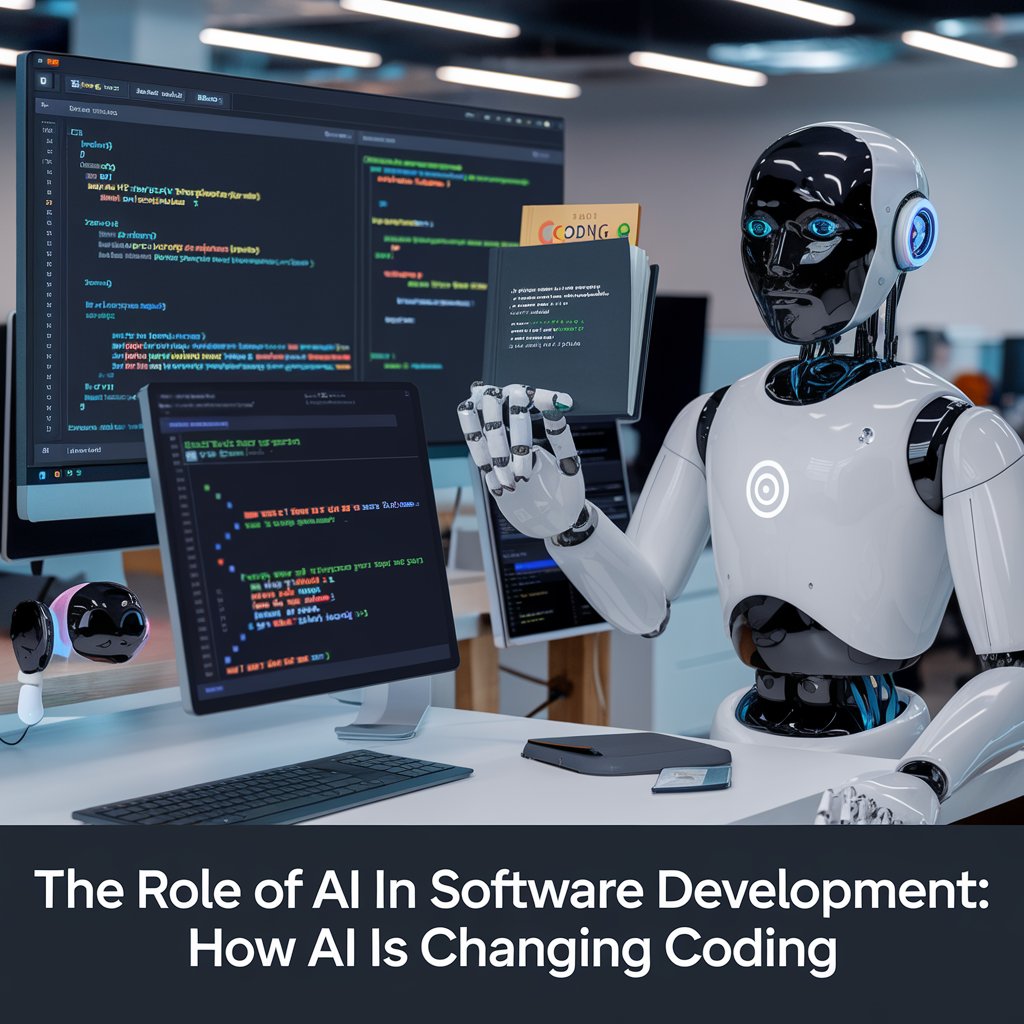Artificial Intelligence (AI) is transforming software development in unprecedented ways, revolutionizing how coding is approached and executed. The integration of AI technologies in software development can be broken down into several key areas:
1. Automated Code Generation
AI-powered tools like GitHub Copilot and Tabnine assist developers by generating code snippets, completing lines of code, and even offering entire code blocks based on the context. These tools analyze the structure and purpose of the code and propose solutions, enabling developers to write code faster and with fewer errors. They can transform simple comments or descriptions into actual code, allowing for rapid prototyping and minimizing repetitive tasks.
2. Debugging and Code Quality Assurance
AI-driven platforms can now detect bugs, performance bottlenecks, and potential vulnerabilities in the code. Tools like DeepCode and CodeGuru automatically review code, suggest improvements, and highlight issues early in the development cycle. They can analyze large volumes of code faster than manual testing, improving the overall quality and reliability of software products.
3. Code Optimization
AI can analyze existing codebases and recommend performance optimizations, such as refactoring inefficient code or suggesting better algorithms. This leads to faster, more scalable applications. AI’s ability to detect patterns in large datasets makes it perfect for optimizing complex systems with many moving parts.
4. Predictive Analytics in Project Management
AI helps project managers in software development by predicting project timelines, identifying resource requirements, and flagging potential risks. Platforms like Jira and Trello are integrating AI to predict deadlines, resource allocation, and potential delays, helping teams stay on track. By analyzing historical data from past projects, AI can offer insights to improve future software development processes.
5. Automating Testing
AI is revolutionizing software testing by automating test case generation and execution. Tools like Test.ai and Applitools use AI to create and run tests across various platforms, identifying issues in user interfaces, functionalities, or performance. This significantly reduces the need for manual testing, allowing development teams to focus on higher-level tasks and improving testing accuracy.
6. Natural Language Processing (NLP) for Code Understanding
AI models based on NLP, such as OpenAI’s Codex, can interpret and translate human language into code. Developers can simply describe what they want their program to do in plain language, and the AI converts that description into executable code. This bridges the gap between non-developers and developers, making coding more accessible to a broader audience.
7. AI-Driven Development Environments
Integrated Development Environments (IDEs) are becoming smarter with AI. They now offer predictive code completion, automatic code formatting, and real-time suggestions as developers write. These AI-enhanced IDEs, such as Visual Studio Code with AI extensions, streamline the coding process by reducing the cognitive load on developers and allowing them to focus on creative problem-solving.
8. Personalized Learning and Skill Improvement
AI can tailor learning paths for developers by analyzing their coding style and suggesting resources to improve specific skills. Personalized AI-powered assistants recommend documentation, tutorials, and courses based on the individual’s knowledge gaps, speeding up the learning curve for junior developers and helping senior developers stay up-to-date with new technologies.
Conclusion:
AI is reshaping the landscape of software development by automating routine tasks, improving code quality, and optimizing project workflows. As AI continues to evolve, its role in software development will expand, enabling developers to focus more on innovation and solving complex problems, while AI handles the more repetitive and error-prone aspects of coding.
By embracing these AI-driven tools and processes, software developers and teams can create more efficient, scalable, and reliable applications, ultimately enhancing productivity across the industry.
FAQs
1. What is AI in software development?
AI in software development refers to the use of artificial intelligence technologies to enhance various aspects of the coding process, including code generation, debugging, testing, project management, and optimization.
2. How does AI assist with code generation?
AI tools can automatically generate code snippets or complete code blocks based on natural language descriptions or existing code patterns, helping developers write code faster and reduce errors.
3. Can AI help in debugging code?
Yes, AI can analyze code to detect bugs, performance issues, and security vulnerabilities. It provides suggestions for fixes and improvements, streamlining the debugging process.
4. What are some popular AI tools for software development?
Some popular AI tools include GitHub Copilot, Tabnine, DeepCode, CodeGuru, Test.ai, and Applitools. Each of these tools offers different functionalities, such as code suggestions, bug detection, and automated testing.
5. How does AI improve code quality?
AI enhances code quality by providing real-time feedback, identifying potential issues, suggesting best practices, and automating testing processes to catch bugs early in the development cycle.
6. Is AI replacing software developers?
AI is not replacing software developers but rather augmenting their capabilities. It automates repetitive tasks, allowing developers to focus on more complex and creative problem-solving aspects of software development.
7. How can AI aid project management in software development?
AI can analyze historical project data to predict timelines, resource needs, and potential risks, helping project managers make informed decisions and improve project outcomes.
8. What role does Natural Language Processing (NLP) play in coding?
NLP enables AI models to understand human language and translate it into code, making programming more accessible to non-developers and streamlining the coding process for experienced developers.
9. How does AI personalize learning for developers?
AI analyzes individual coding styles and identifies knowledge gaps, then recommends tailored learning resources such as tutorials, documentation, and courses to help developers improve their skills.
10. What does the future hold for AI in software development?
The future of AI in software development is promising, with advancements expected in automation, collaboration, and enhanced development environments. As AI technologies evolve, they will likely play an even more significant role in shaping the software development landscape.
